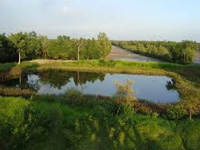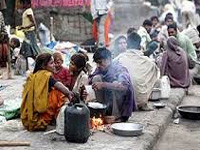Climate change impacts in Bangladesh
With the Himalayas to the north and the Bay of Bengal to the south, Bangladesh sits on one of the world’s largest and most densely populated deltas, where the Jamuna, Padma and Meghna rivers converge.
With the Himalayas to the north and the Bay of Bengal to the south, Bangladesh sits on one of the world’s largest and most densely populated deltas, where the Jamuna, Padma and Meghna rivers converge.

Citing concerns over the impact on the World Heritage Site in Sundarbans, including on the Royal Bengal Tiger, the United Nations (UN) has recommended Bangladesh to scrap the proposed 1,320MW thermal power
<p>Exponentially rising CO2 (currently ~400 μatm) is driving climate change and causing acidification of both marine and freshwater environments. Physiologists have long known that CO2 directly affects
<p>Massive slums have become major features of cities in many low-income and middle-income countries. Here, in the fi rst in a Series of two papers, we discuss why slums are unhealthy places with especially

29% Drop In Hunger Worldwide But India Slips From 83 To 97 In 16 Yrs India continues to have serious levels of widespread hunger forcing it to be ranked a lowly 97 among 118 develop ing countries for
<p>The rates of influenza illness and associated complications are high among children in Bangladesh. We assessed the clinical efficacy and safety of a Russian-backbone live attenuated influenza vaccine
The Poor People’s Energy Outlook 2016 provides pioneering new research into energy access planning from the perspective of the energy poor in Bangladesh, Kenya, and Togo. It finds that bottom-up national
The use of hydrofluorocarbons (HFCs) is expected to rapidly rise in the coming decades unless more is done to curb their growth. This according to a new report by the Climate and Clean Air Coalition to
<p>It is fitting that the United Nations Habitat III conference in October will be held in Quito, Ecuador. In April, the city and nearby Portoviejo and Manta suffered an earthquake that killed more than

GENEVA: Nine out of 10 people globally are breathing poor quality air, the World Health Organisation said on Tuesday, calling for dramatic action against pollution that is blamed for more than six million
<p>Many of the world’s megacities depend on groundwater from geologically complex aquifers that are over-exploited and threatened by contamination. Here, using the example of Dhaka, Bangladesh, we